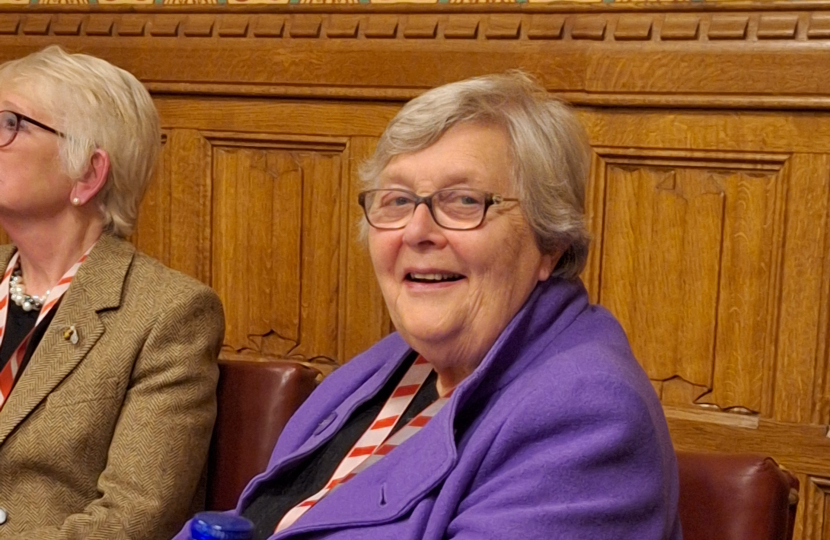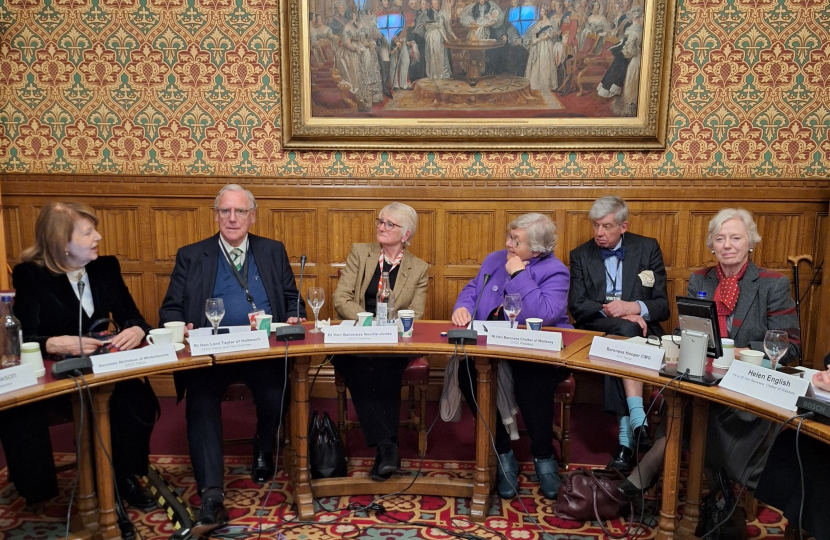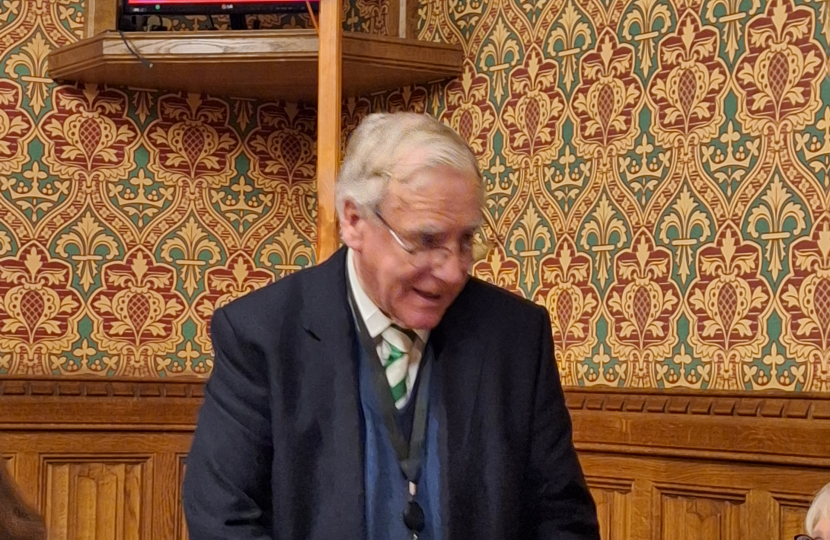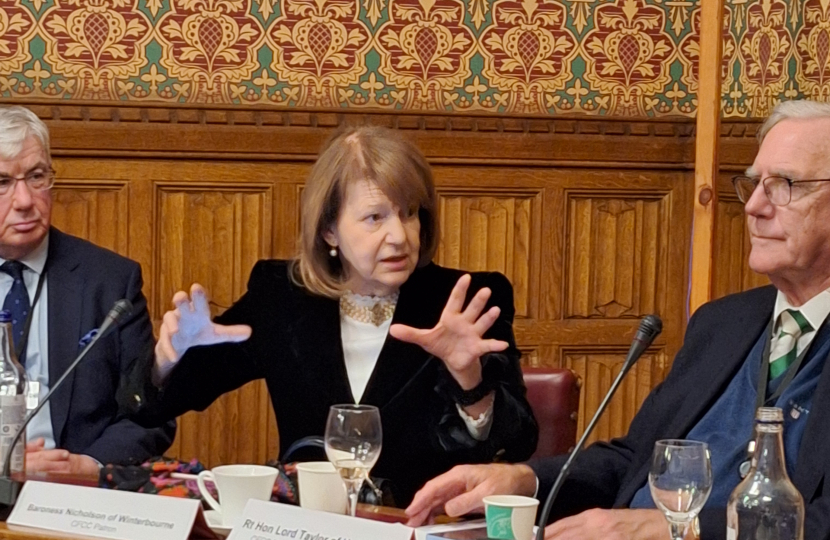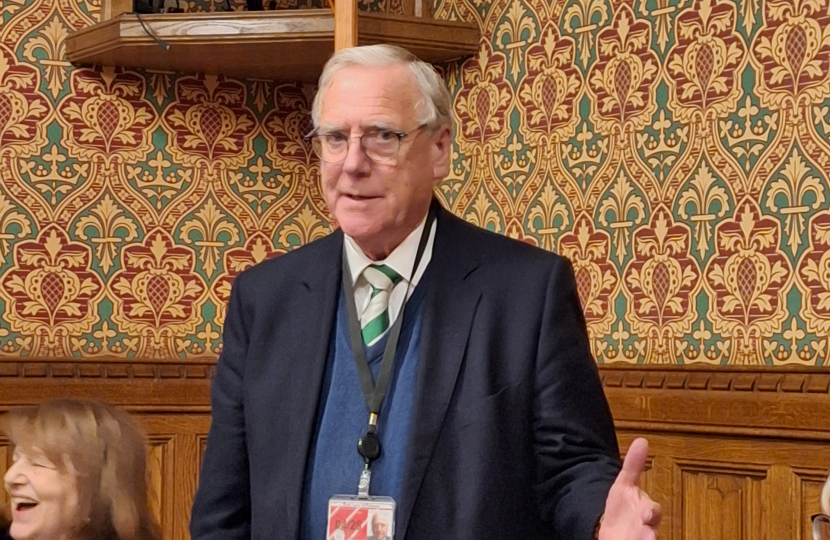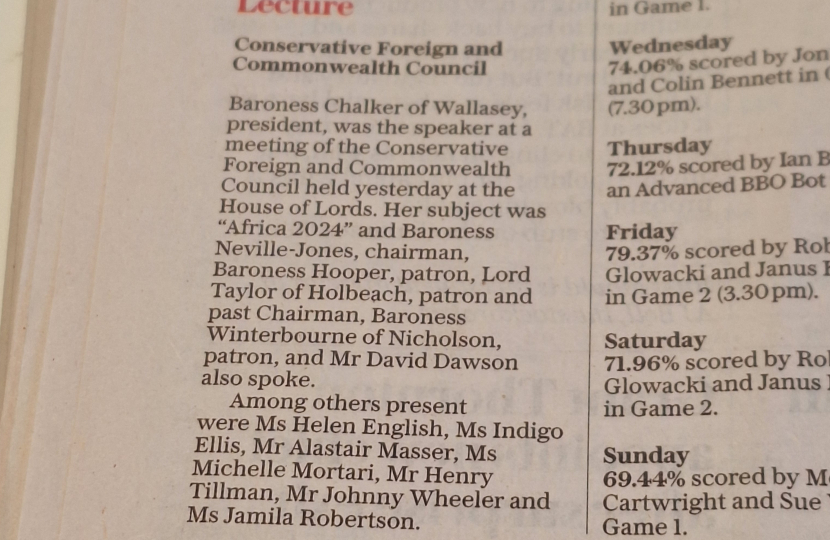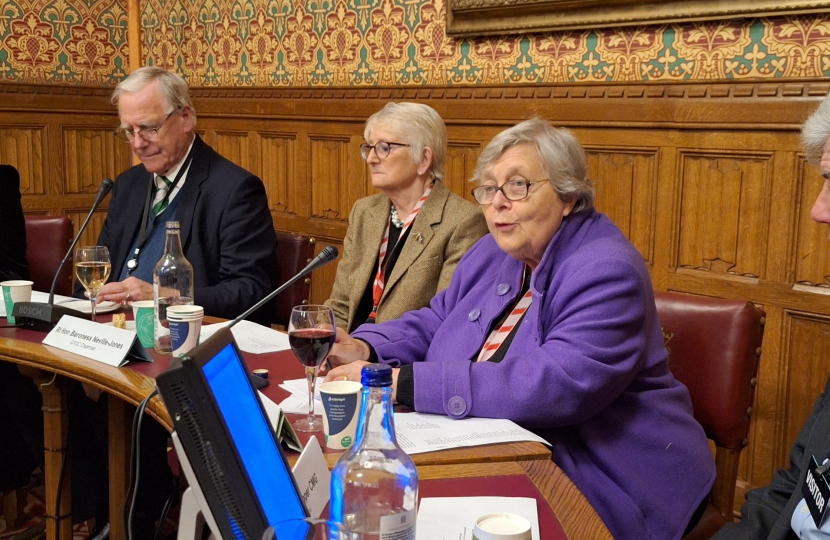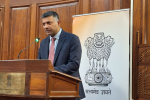“Africa 2024”
Rt Hon Baroness Chalker of Wallasey FRGS, President CFCC
Friends and members of the Conservative Foreign and Commonwealth Council gathered in the House of Lords, for its first meeting of the year: a superb speech and discussion led by CFCC President, Baroness Chalker of Wallasey, on the subject of ‘Africa 2024.’
CFCC Chairman, Baroness Neville-Jones, opened proceedings to introduce Baroness Chalker, whom she described as one of the best known and best regarded ministers of development this country has had; leaving big shoes for her successors to fill. She said it was appropriate Baroness Chalker spoke to us about Africa, as she had spent a significant amount of time on the continent, and wanted to hear her reflections on the continent which still has most to do, most to develop, and is one of the most beautiful parts of the world.
Baroness Chalker thanked Baroness Neville-Jones for her kind words and said it was an honour to address the CFCC, which as she noted, had celebrated its 70th anniversary last year; and for seven decades had been an invaluable forum for the discussion of international affairs.
Baroness Chalker observed that this year, the Council’s 71st, was an election year in the UK, but also in South Africa and a number of other countries. She remarked that international affairs were seldom viewed in this country as a central point to voters’ concerns, except when it came to the current debate around refugees. Baroness Chalker added that unless you read the erudite pages of the Guardian, Telegraph, or The Times, you don’t get much good news. She assured attendees that there was good news, although much of it never hit the British public.
Turning to news we may have been more familiar with, Baroness Chalker observed the tragedy of conventional warfare returning to mainland Europe, and the rise of authoritarianism in other countries. She affirmed how fundamental international relations were to our collective security and prosperity, helping to make our interconnectivity an asset; and reminding us that international relations make the difference between war and peace in every country, and across all regions of the world. She observed that the economic shocks we’ve all been dealing with, whether Covid, or gas and oil prices, had pushed an estimated 55 million people in Africa into poverty since 2020; reversing two decades of progress in poverty reduction.
Nonetheless, African nations and their populations were increasingly making their presence felt, with a fifth of the world’s population set to call Africa home by 2030; a testament to the work of countless governments and NGOs to raise life expectancy across the continent. With twelve of the world’s fastest growing economies this year likely to be African, she warned that the economic opportunity had to find a way to keep pace with the growing population.
Africa is forecast to be the second fastest growing region in the world, just behind Asia; whilst South Africa is set to overtake Nigeria and Egypt as the largest economies in 2024, as predicted by the IMF. East Africa is expected to outperform other African regions due to its location, infrastructure, and politics. However, Baroness Chalker warned that we must not ignore the troubles in Somalia, Ethiopia, the Sahel, and the DRC, and stressed that we must try to combat regional instability, to temper the growing refugee crisis.
Equally crucial would be Africa’s role in global efforts to combat climate change, as the continent is home to 60% of the world’s solar power potential, creating an eye watering $100bn investment opportunity. It is therefore unsurprising that the UK’s relationship with African nations is fast evolving, but as good news, we hear very little of it.
Baroness Chalker noted that 2024 marked the 30th anniversary of the watershed elections which brought Nelson Mandela to power; and this year’s poll showed the tightest race in South Africa since then, increasing the prospect of a possible period of coalition government. She shared her hopes that the parties could come together for the greater good of the national interest, and ended her address, observing Africa’s huge fund of willing people wanting to do the right thing, provided its governance enabled them to do so.
Baroness Neville Jones led closing remarks, thanking Baroness Chalker for her insights, and observing the opportunity and challenge of turning a continent of extraordinary natural wealth, into societies which served the populations who lived there.
Questions from the floor sparked conversations on French investments in African tech; the influence of Saudi Arabia and the UAE on the continent; the opportunity for the export of British educational systems, as seen with Alliance Francaise in Ghana; and the importance of governments working more closely with NGOs, to assist the countries most nervous about officially asking the UK for help.
Lord Taylor of Holbeach closed the evening with thanks to Baroness Chalker, reminiscing on their time as young Conservatives, and affirming how greatly she was missed in the House of Lords.
Jamila Robertson

